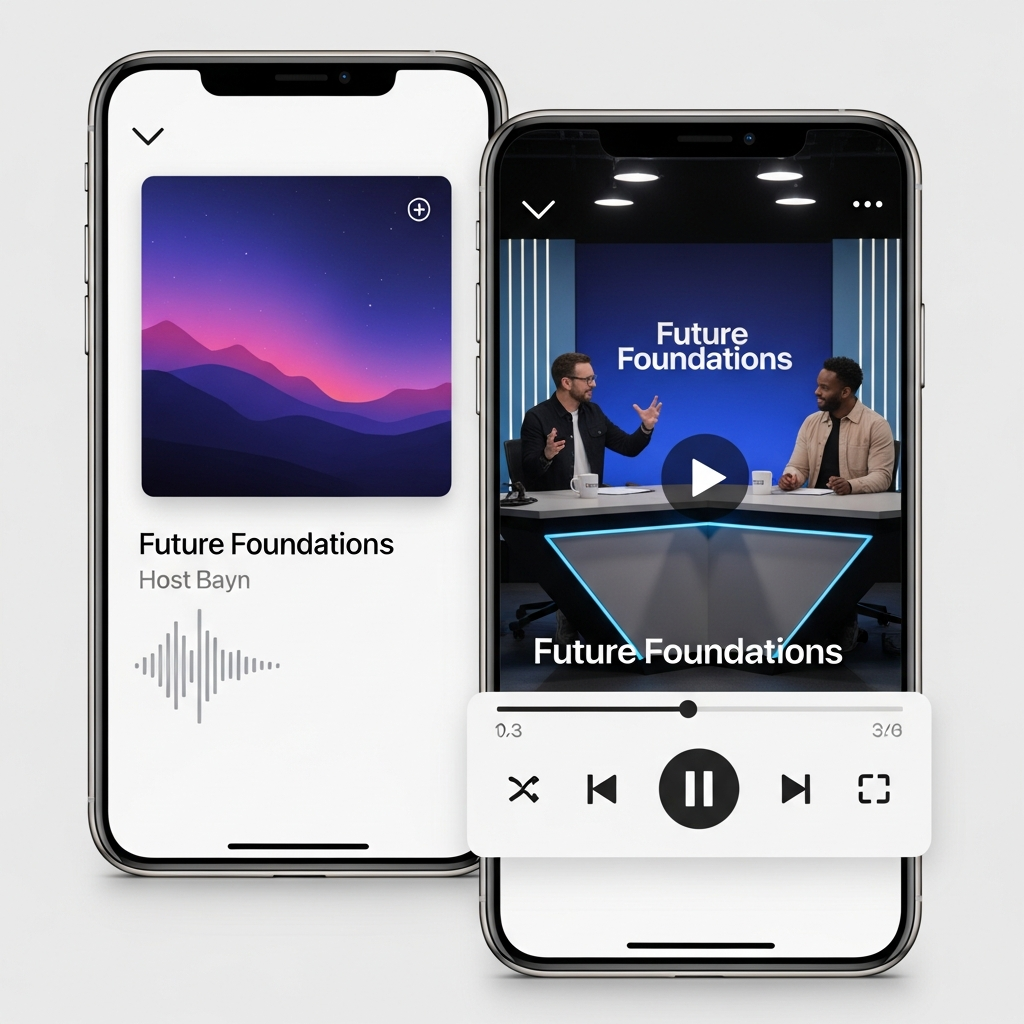Navigating the emotional and practical challenges of job loss can be overwhelming. In the wake of significant workforce reductions impacting tech giants like Microsoft and its gaming divisions, a controversial suggestion emerged from an unlikely source: an Xbox executive. This executive proposed that laid-off employees turn to Artificial Intelligence (AI) tools, such as ChatGPT and Microsoft Copilot, for support during this difficult transition. While intended to offer guidance, the advice sparked immediate and intense debate, highlighting the complex relationship between AI, job security, and human well-being in the modern era.
The suggestion came from Matt Turnbull, an Executive Producer at Xbox Game Studios Publishing, via a now-deleted LinkedIn post. His rationale was straightforward: in challenging times when mental energy is scarce, AI tools could potentially “help reduce the emotional and cognitive load that comes with job loss.” He stated he would be “remiss in not trying to offer the best advice I can under the circumstances,” referring to the widespread layoffs, studio closures, and game cancellations affecting thousands at Microsoft.
The Executive’s AI Suggestions for Laid-Off Workers
Turnbull’s deleted post offered specific, actionable examples of how AI chatbots could assist those facing unemployment. He categorized these uses into four main areas, providing sample prompts users could adapt:
Practical Job Search Applications
AI tools, particularly large language models (LLMs), can act as tireless assistants for the technical aspects of seeking new employment. Turnbull outlined several ways AI could help:
Career Planning: AI could function like a virtual career coach, helping users structure a job search plan. An example prompt suggested building a 30-day plan for regrouping, researching roles, and applying without burnout. AI might also help identify potential career pivots within or outside the game industry based on a user’s specific experience (e.g., Production, Narrative, LiveOps).
Resume & LinkedIn Optimization: Crafting tailored resumes and LinkedIn profiles is crucial but time-consuming. AI could take an existing resume and generate multiple versions optimized for different types of roles (e.g., AAA studios, platform/publishing, startups). Prompts included asking AI to rewrite resume bullets to highlight impact and metrics or draft a compelling LinkedIn “About Me” section focusing on leadership, shipped titles, and professional vision.
Networking & Outreach: Reaching out to former colleagues and potential new contacts requires careful wording. AI could help draft polite and effective messages. Examples included generating messages to inform old coworkers about exploring new opportunities or writing warm introductory notes for reaching out to individuals at target studios about job postings.
Addressing Emotional Challenges with AI?
Perhaps the most debated aspect of Turnbull’s advice was the suggestion that AI could aid with the emotional fallout of job loss. While acknowledging AI isn’t a replacement for human experience, he proposed it could offer clarity when feeling overwhelmed.
Emotional Clarity & Confidence: One prompt idea suggested using AI to help reframe the experience of being laid off, particularly for those grappling with imposter syndrome. The goal was for AI to help remind the user of their strengths and past accomplishments. Turnbull argued that these tools could help users “get you unstuck faster, calmer, and with more clarity” when mental energy is depleted by stress.
Why the Suggestion Sparked Outrage
Despite Turnbull’s framing of the advice as well-intended support, the reaction, particularly on social media platforms after the post was captured, was overwhelmingly negative. Critics lambasted the suggestion as tone-deaf and insensitive given the context.
The primary source of controversy stemmed from the perceived irony. Microsoft, a company aggressively investing billions in AI (announcing $80 billion for infrastructure prior to these layoffs) and developing AI tools used in creative industries like gaming, was simultaneously laying off thousands of employees. Many viewed AI as a technology contributing to job insecurity or displacement, making the recommendation to use AI to cope with job loss feel like a cruel paradox.
Comments on reposts of Turnbull’s message highlighted this disconnect, with some comparing it to historical examples of out-of-touch advice given to suffering populations. The fact that the suggested tools (Copilot, linked to Microsoft’s partnership with OpenAI/ChatGPT) were directly tied to the company conducting the layoffs further fueled the criticism. Doubts were also raised about the ability of a non-sentient AI to genuinely provide meaningful emotional support for the profound human experience of job loss.
Exploring AI’s Potential as a Job Search Tool (Carefully)
Setting aside the controversial context, it’s worth examining the practical applications of AI in job seeking that Turnbull touched upon. AI-powered tools are increasingly being used by job seekers for specific tasks.
Generative AI can analyze vast amounts of data, understand language patterns, and generate human-like text. This makes them useful for:
Content Generation: Drafting initial versions of resumes, cover letters, and LinkedIn summaries.
Tailoring Applications: Quickly adapting a master resume or cover letter to match specific job descriptions by highlighting relevant skills and experiences.
Information Gathering: Researching companies, roles, and industry trends.
Practice: Running through potential interview questions or generating follow-up email drafts.
However, experts caution against relying solely on AI. AI-generated content may lack authenticity, nuance, or crucial personal detail. Resumes and cover letters still require careful human review and personalization to stand out. Furthermore, AI tools can sometimes ‘hallucinate’ or provide inaccurate information.
The Nuance of AI and Emotional Well-being
The idea of using AI for emotional support is complex and hotly debated within psychology and technology circles. While Turnbull’s suggestion was specific to reframing imposter syndrome related to job loss, it opens the door to the broader discussion of AI in mental health.
Some AI applications are being developed for mental wellness, offering things like guided meditations, mood tracking, or cognitive behavioral therapy (CBT) exercises. Proponents argue AI can provide accessible, immediate, and potentially unbiased support, especially for those facing barriers to traditional therapy.
However, critics and mental health professionals emphasize that AI lacks empathy, the ability to build a therapeutic relationship, and the capacity to handle complex trauma or mental health conditions. Privacy concerns regarding sensitive personal information shared with AI are also significant. While an AI might help structure thoughts or provide generic positive affirmations, it cannot replace the deep connection, understanding, and professional expertise offered by human therapists or the vital support provided by friends, family, and community networks.
AI, Layoffs, and the Shifting Employment Landscape
The incident at Xbox occurred within a larger trend of significant layoffs across the tech and gaming industries throughout 2023 and 2024. These cuts often coincide with massive investments in AI, raising questions about the technology’s impact on employment.
While economists debate the long-term effects, the immediate optics of companies reducing their human workforce while simultaneously pouring resources into automation technology are challenging. Polls suggest public sentiment about AI’s impact on jobs is mixed to negative; one report indicated only 23% of Americans foresee a positive impact on how they work. Statements from tech leaders, like Bill Gates suggesting humans might not be needed for “most things” in the future, further fuel anxieties.
This backdrop is crucial to understanding the backlash against Turnbull’s advice. For many laid-off workers, AI isn’t just a tool; it’s perceived as a potential factor in their current predicament. Suggesting they lean on this same technology for emotional and practical support, particularly tools owned by the company that just let them go, was widely seen as missing the human element of the crisis.
Navigating Job Loss in the AI Era: A Balanced Approach
Job loss is a deeply personal and challenging experience. While AI tools can offer efficiency boosts for certain job search tasks, they are just one component of a comprehensive strategy.
A balanced approach involves leveraging technology where it’s genuinely helpful (like drafting resume initial drafts or finding job listings) while prioritizing essential human-centric elements. This includes seeking emotional support from friends, family, or mental health professionals, networking authentically with former colleagues and industry contacts, and dedicating time to personal well-being activities. Professional career coaches can offer tailored guidance that no AI can replicate.
Ultimately, navigating career transitions in a world increasingly shaped by AI requires resilience, adaptability, and a clear understanding of where technology can assist and where human connection and professional expertise remain irreplaceable. The Xbox executive’s suggestion, while controversial, did at least ignite a conversation about the potential role of AI in difficult career moments, even if its delivery underscored the critical need for empathy and context in corporate communication during times of crisis.
Frequently Asked Questions
What did the Xbox executive recommend laid-off workers use?
During recent large-scale layoffs at Microsoft and Xbox, executive Matt Turnbull suggested in a now-deleted LinkedIn post that laid-off employees utilize Artificial Intelligence (AI) tools, such as ChatGPT and Microsoft Copilot. He proposed these tools could help manage the stress and emotional/cognitive load associated with job loss and assist with practical tasks like career planning and resume building.
How specifically could AI tools help with job searching after a layoff?
According to the executive’s suggestions and broader analysis, AI tools could aid in several practical job search areas. This includes helping to structure a 30-day job search plan, identifying potential new career paths based on experience, drafting and tailoring resumes and LinkedIn profiles, and generating messages for networking and outreach to professional contacts and potential employers.
Why was the suggestion to use AI after layoffs considered controversial?
The suggestion sparked significant controversy primarily due to its timing and perceived irony. Coming immediately after thousands were laid off by Microsoft, a company making massive investments in AI, many viewed recommending AI tools as insensitive and tone-deaf. Critics pointed out the paradox of using technology potentially seen as contributing to job displacement to cope with being laid off by the company promoting that technology.




